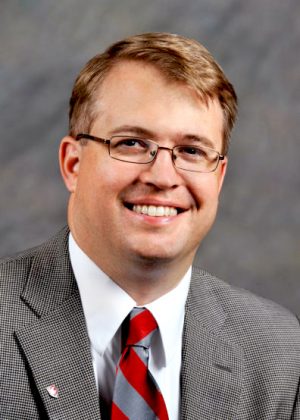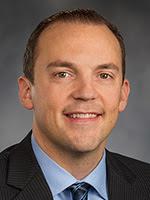WSU medical school tries to join state health network
If bill passes, Elson S. Floyd College of Medicine will gain vote on residency board
February 2, 2018
WSU’s new medical college has requested the Legislature add it to the state’s hospital residency network program, which connects new doctors with hospitals.
House Bill 2443, which currently sits in committee, would add the Elson S. Floyd College of Medicine to the Family Medicine Residency Network.
“This will really help legitimize us quite a bit,” WSU Director of State Relations Chris Mulick said. “We should rightfully be named as a third co-chair to that board.”

Tiffany Jones, the administrator of the residency network at University of Washington, said the network benefits communities. She said UW has had the FMRN in place since 1973, and it has been useful for making sure doctors finish their residency and stay in the area after completing the program.
“If you create a residency program,” Jones said, “you create a pipeline for underserved communities.”
Mulick, who testified on behalf of the bill, said the bill needs to make it through the Legislature by Valentine’s Day. He said he hopes it will reach the governor’s desk by March 8 to be signed before the session ends.
Mulick said he wants WSU to join the ranks of UW and Pacific Northwest University of Health Sciences in the FMRN. PNWU joined in 2015, when it pushed a similar bill through the state Legislature.
“This is really just updating existing law to reflect maturation of our medical school,” Mulick said.
WSU has already been invited by both UW and PNWU to attend advisory board meetings, but if the bill passes, WSU will be able to upgrade its status from non-voting to voting membership. The representative from WSU is Joshua Jacobs, who is a professor and chair of the Department of Medical Education and Clinical Sciences.

He said the school is already placing residents, but having a voting seat matters because WSU will have a say in how state and donor funding is allocated to programs.
The bill was sponsored by Rep. Marcus Riccelli, who was the prime sponsor of a previous bill that removed UW’s exclusive right to medical education in the state.
Riccelli said this success was a huge motivator for backing the new bill. He anticipates no problems for the bill, and said the Health Care Committee unanimously passed it.
He believes WSU deserves a seat at the table.
“This bill is simply a natural progression,” Riccelli said.
If the bill passes, it will take effect 90 days after the adjournment of the session in which it was passed.




















